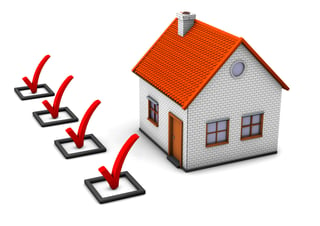 Handling your own damage claim can be a challenge and a trying experience. Even if you understand your homeowners policy and you know what’s covered you will likely encounter unfamiliar problems. To handle the challenges presented by your homeowners claim, you will need to develop information and expertise along the way to ensure you recover the full value.
Handling your own damage claim can be a challenge and a trying experience. Even if you understand your homeowners policy and you know what’s covered you will likely encounter unfamiliar problems. To handle the challenges presented by your homeowners claim, you will need to develop information and expertise along the way to ensure you recover the full value.
Your To-do Checklist
You don’t need an app or a program to help you meet your homeowners claim challenges. You can handle them with an old-fashioned to-do list, a checklist of the things you need to accomplish.
Smart Strategies
Good claim service by your insurer includes handling your claim promptly and fairly. A conflict may arise when your insurance company’s adjuster does not agree with your estimated losses and looks for ways to exclude some or all of them. While you may feel consistent payment of your premiums equals fair reimbursement at a time of loss, sadly it is not always the case. Making the decision to hire an expert to help you get what you’re entitled to may end up being your best defense. In the meantime, here are five ways you can avoid home insurance claim delays and get your insurance company to agree to your estimate.
- Get Names
Begin your claim documentation by writing down the name, job title, and phone number of any person you talk to about your claim until it's resolved. If you contact anyone from your cell, add names and numbers to your contact list.
- Maintain ongoing documentation
Document everything until you figure out what’s really important. Organize your records in a “Claim Notebook.” It can be a binder or system of files that's portable enough to take it wherever you go. Keep invoices, estimates and other documents in an attached envelope
- Review your insurance policy
It’s important to understand what is and isn’t covered by your Homeowners policy. If you need help with policy language, ask your agent or another insurance professional. The company insurance adjuster might explain his interpretation of your policy coverages, but it’s best to develop your knowledge independently. You might arrive at a different conclusion.
- Understand the hidden costs
The contract to repair your home will include delivery charges, a profit and overhead factor and other costs you should understand. If they are excessive or unreasonable, your adjuster might not want to pay them.
- Establish a working relationship with your contractor
While your home is being repaired, the men doing the work will be a part of your daily life. To keep the repair process running smoothly and know your contractor’s daily progress, you should establish a good working relationship. When a contractor feels comfortable with you, he will answer your questions about materials, costs, and other details that will help you negotiate your claim intelligently.
- Get friendly with your adjuster
Never be lulled into thinking that your insurance adjuster is your best friend, but it’s still a good idea to maintain a friendly working relationship during the life of your claim. As with your contractor, you will be forced into a long-term relation with your adjuster. If he sees you as a likable person, he will be more reasonable when it’s time to make decisions that affect you.
- Discuss issues as they arise
When your home is being restored, it's important to understand what’s going on and whether or not it’s covered by insurance. When you establish a good working relationship with your adjuster and contractor, you will feel confident about asking questions that help you understand the process.
- Know when to finalize your claim
You shouldn’t sign a release or settle your property claim quickly unless you know your actions won’t leave you with unpaid bills. As your general contractor will likely require upfront payment for suppliers, subcontractors, and other costs. If possible, get an advance from your insurance company, but never sign a final release until you are satisfied that all of your expenses will be paid.
Miller Public Adjusters currently serves the states of
Wisconsin - Florida - Illinois - Indiana - Michigan - Minnesota - Texas
Call us 24 hours a day at (800)958-4890 to schedule an appointment or
please fill out a Free Claim Review to see if we can help.
.png?width=190&height=55&name=MPA%20Logo%20Vector%20-%20Original%20(3).png)


.webp?width=331&height=382&name=ResourcesCTA-Fin-001%20(1).webp)



